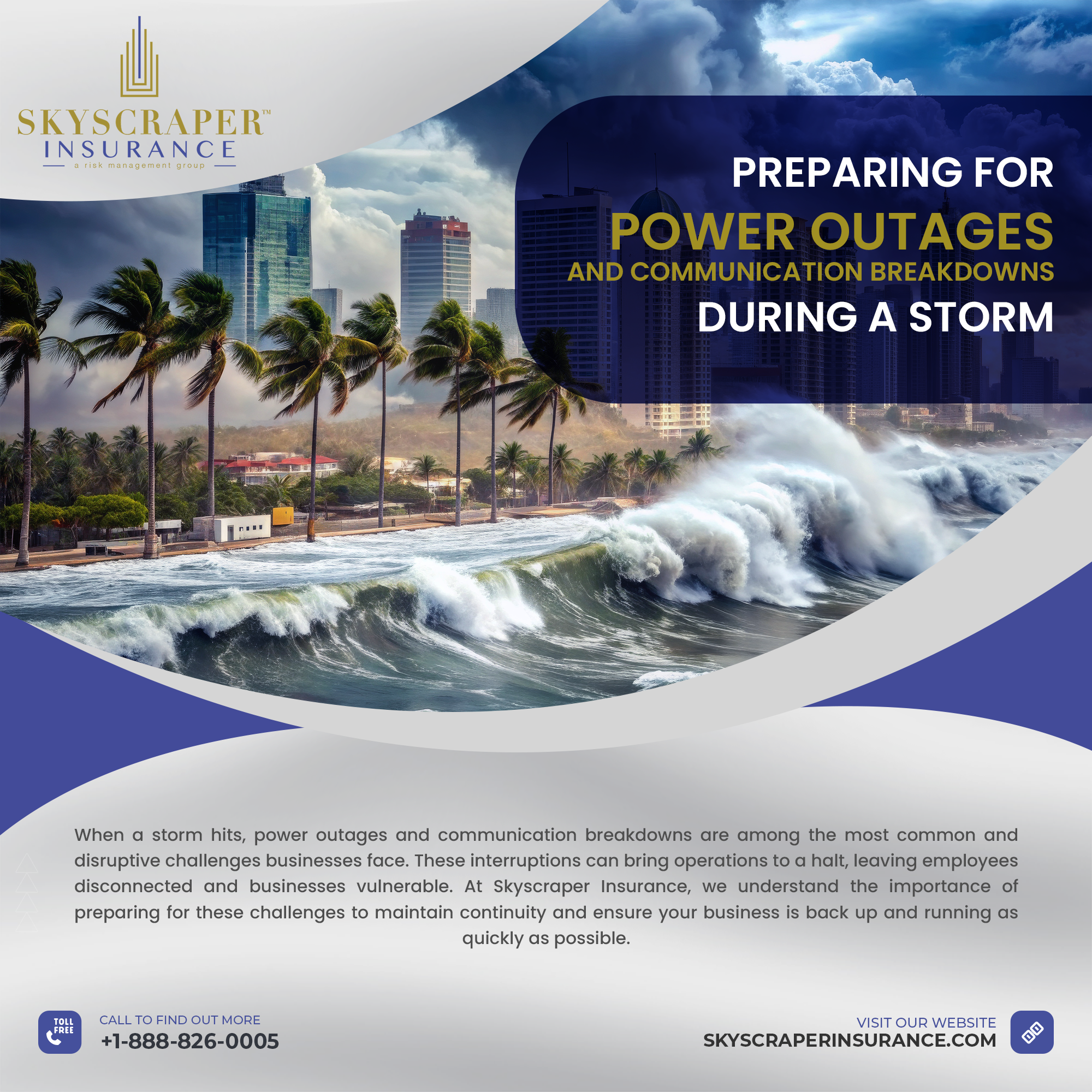When a storm hits, power outages and communication breakdowns are among the most common and disruptive challenges businesses face. These interruptions can bring operations to a halt, leaving employees disconnected and businesses vulnerable. At Skyscraper Insurance, we understand the importance of preparing for these challenges to maintain continuity and ensure your business is back up and running as quickly as possible.
Here are essential steps to safeguard your business:
1. Backup Power Solutions
Investing in backup power is one of the most effective ways to maintain operations during a power outage. Businesses should consider:
- Generators: Installing reliable backup generators can keep critical systems operational when the grid goes down.
- Battery Backup: For smaller systems and critical equipment, battery-powered backup can be a cost-effective alternative.
- Renewable Energy Solutions: Solar power with battery storage offers a sustainable option that can help businesses withstand prolonged outages.
Ensure that these systems are regularly tested and maintained so they’re ready when you need them the most.
2. Data Backup and Cloud Systems
Loss of power often means loss of access to essential business data. To prevent this, ensure your data is:
- Backed up regularly to the cloud to minimize data loss in the event of outages or damage to physical servers.
- Accessible remotely so that employees can continue to work offsite if the office loses power.
Cloud-based storage solutions ensure that even in the event of a local outage, your data remains secure and accessible from anywhere.
3. Communication Continuity Plan
Communication is key during any crisis, but when power and cell towers go down, staying connected can be difficult. Establish a communication continuity plan that includes:
- Multiple Communication Channels: Ensure you have more than one method of communication, such as satellite phones, text messaging services, or radio.
- Employee Contact Information: Keep an updated list of all employees’ contact details, and ensure everyone knows how to reach key team members in the event of an outage.
- Internal Alerts and Notifications: Set up systems to send alerts through various channels (email, text, app notifications) before and after the storm.
4. Remote Work Preparedness
If power outages and communication breakdowns persist, having a remote work plan in place can keep your team productive. Steps include:
- Equip employees with laptops, Wi-Fi hotspots, or mobile data plans to ensure they can work remotely when the office is down.
- Set up collaboration tools such as Slack, Teams, or Zoom to facilitate team meetings and workflow even during power outages.
- Outline clear procedures for remote work expectations in case of prolonged outages.
5. Physical Security Measures
Power outages can also lead to vulnerabilities in your physical premises. Make sure your business has:
- Security systems with battery backup to maintain surveillance and alarm systems.
- Emergency lighting and backup locks to secure your building when the power is out.
- A plan for securing perishable inventory that may be impacted by a lack of refrigeration or climate control.
By preparing your business for power outages and communication breakdowns, you’re safeguarding against costly downtime and ensuring you can recover quickly when the storm has passed. At Skyscraper Insurance, we’re here to help you build a resilient business continuity strategy.









